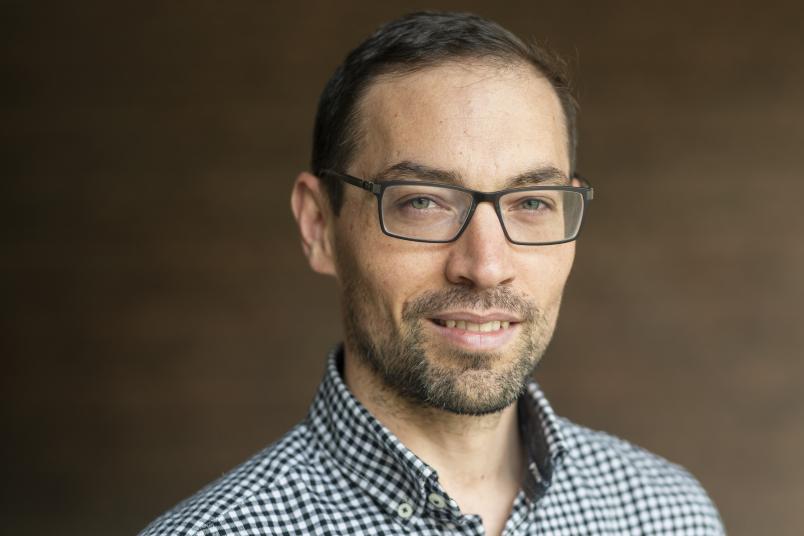
Chemistry
Award for Nicolas Plumeré
The researcher integrates plant enzymes into sensors and fuel cells.
Professor Nicolas Plumeré has been awarded the Luigi Galvani Prize by the Bioelectrochemical Society. The prize is awarded every two years to a researcher who has made an outstanding contribution to the field of bioelectrochemistry. Plumeré has successfully optimised conductive hydrogels and polymers for bioelectrocatalytic systems. The prize was presented at the International Symposium on Bioelectrochemistry and Bioenergetics in Limerick in May 2019.
Nitrate sensor helps gauge fertilisation
A member of the Ruhr Explores Solvation Cluster of Excellence (Resolv), Plumeré focuses on boosting the efficiency of bioelectrocatalytic systems. To this end, enzymes that in nature occur in plants are integrated into technical applications. This includes the nitrate sensor Plumeré has developed, whose centrepiece is a nitrate reductase. Embedded in a conductive hydrogel, the enzyme helps identify the nitrate contents in a sample within a short space of time. Consequently, farmers can verify if a field has to be fertilised directly on location.
Hydrogen for fuel cells
Other applications follow a similar principle: hydrogenases are enzymes capable of producing hydrogen under certain conditions. “Embedded in a polymer matrix, they can be utilised for energy conversion,” says Nicolas Plumeré. In collaboration with his colleagues, he has discovered that the conductive polymers offer an interesting side effect: they may help protect and stabilise oxygen-sensitive hydrogenases in a fuel cell.